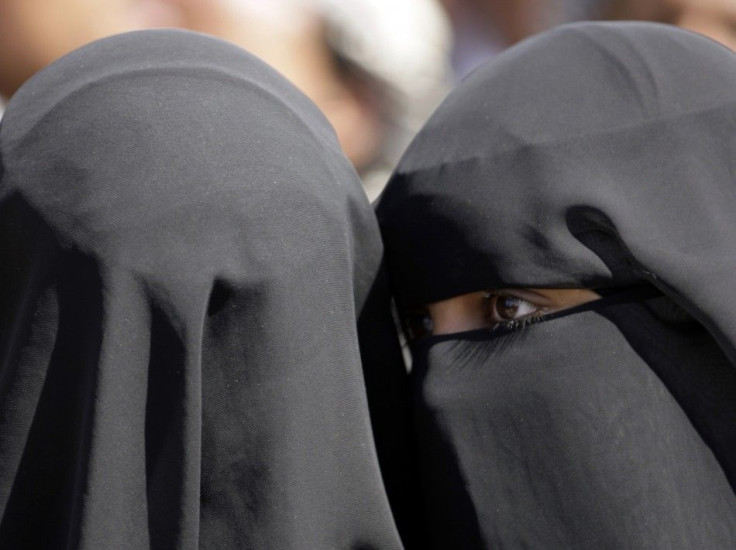American Muslim Woman Hani Kahn Fired for Not Removing Hijab

Hani Kahn, a 20-year-old American Muslim woman, was fired when she refused to remove her hijab for religious reasons, while working as a stockroom employee at preppy clothing retailer Hollister.
On Monday she sued the store’s parent company, Abercrombie & Fitch, after the federal Equal Employment Opportunity Commission determined that the chain had wrongfully fired her.
“Growing up in this country where the Bill of Rights guarantees freedom of religion, I felt let down,” the college student told The Washington Post. “This case is about principles, the right to be able to express your religion freely and be able to work in this country.”
In a news conference Monday, Khan -- wearing a bright purple hijab -- said when she was hired, her manager didn’t oppose her wearing the traditional head covering. The only condition was that she should wear it in company colors --navy blue, gray or white. But four months later, a human resources manager told her not to wear the scarf after a district manager visited the store.
Khan refused. Then she was suspended, and a week later she was fired.
Khan said that this experience really shook her confidence. Khan began wearing a hijab early when she was in kindergarten. She said, “I didn’t have that problem before.”
After 9/11, all my neighbors, all my classmates, all my teachers -- they supported me, Khan said. No one had an issue then. For there to be an issue now, it was just completely out of the ordinary.
However, Abercrombie rejected the claim. In a statement by Abercrombie & Fitch to CNN's affiliate, Abercrombie said that they are committed to providing equal employment opportunities to all individuals regardless of race or ethnicity.
“We are confident that when this matter is tried, a jury will find that we have fully complied with the law,” he said to the Associated Press.
In respond to Khan’s complaint, Zahra Billoo, executive director of the Council on American-Islamic Relations in San Francisco, said in a press release, “It was the explicitness of Abercrombie & Fitch’s discriminatory demands which concerned us. They were both egregious and illegal.”
In addition to Khan’s case, two more women have sued the company claiming that they weren’t hired because they wear hijabs.
Khan's suit seeks to force Abercrombie to change its dress code to loosen restrictions on religious clothing. She is not trying to get her job back but is seeking back wages and unspecified damages.
Abercrombie prides itself on requiring what it calls a natural classic American style. But there's nothing American about discriminating against someone because of their religion, Araceli Martinez-Olguin, Khan's lawyer, said.
© Copyright IBTimes 2024. All rights reserved.











